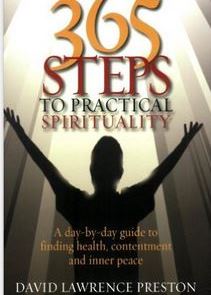It seems to me that John the Baptist plays a much bigger part in the gospels than he is given credit for.
The gospels tell us that John was a reclusive holy man well-known for preaching that a new world order was about to be established and people had better repent and confess their sins. This would happen very soon. There would be a Day of Judgement after which the righteous would be rewarded and the unrepentant punished for eternity in an unquenchable fire. The gospels say he baptised people by submerging them in the River Jordan to symbolise cleansing, rebirth and delivery from their sins.
He caused quite a stir in the region. According to the Jewish historian Josephus (who, like the gospel writers, wrote in the second half of the 1st Century), John the Baptist was better known, more popular and more troublesome to the authorities than Yeshua Bar Yehosef. Herod Antipas, the puppet king who ruled Galilee on behalf of the Romans, thought that John’s preaching would lead to an uprising, so he had him arrested and executed. But he left Yeshua alone.
The gospels say that the reason for John’s arrest was that Antipas had recently replaced his wife with a younger woman, Herodius. John had angered Antipas by criticising his behaviour, so Herodius persuaded her new husband to have him beheaded. The truth is probably a combination of Josephus’s view and the gospel writers: perhaps John’s reaction to the marriage was not the only reason for his arrest, just the last straw.
The gospels say that John never claimed to be the Messiah, but spoke of one who would follow who would be much greater than he. And when Yeshua sought him out for baptism, John thought he had found him.
Yeshua’s relationship with John the Baptist
According to the Gospel of Luke, Jesus and John the Baptist were cousins and John, like Yeshua, was the product of a divine conception. The other gospels make no mention of this. If they were cousins, why do the gospels suggest that John the Baptist didn’t know Jesus? We must draw our own conclusions.
We know nothing of how the carpenter from Nazareth came to be radicalised but we do know that he decided to take on John’s mantle after John’s arrest.

The theological dilemma
If you consider Yeshua to be a Great Teacher from whose words we can learn and whose example of love and wisdom we can follow, his seeking of baptism from John doesn’t present you with any particular problems. But the early Christians, intent on convincing themselves and others that Yeshua was G_d incarnate, were unable to satisfactorily explain why he would seek baptism from a man who they considered to be his spiritual inferior. Hence they went to extraordinary lengths to portray Yeshua as superior to John.
All four gospels state that John recognised Yeshua as the Messiah when he presented himself for baptism. Then, to strengthen their case, the first three – the Synoptics – tell us that a miraculous event occurred: as Yeshua emerged from the water the Holy Spirit descended from heaven like a dove and a heavenly voice – the voice of G_d – was heard.
(In the 21st Century anyone who claimed to have heard such a voice would of course be admitted to a psychiatric establishment! But in 1st Century Palestine, it seems people were quite prepared to believe in a voice from the clouds.)
- In the first and third gospels, the voice addresses Yeshua himself – ‘You are my son, the beloved. With you I am well pleased.’
- In the second gospel, it addresses the onlookers. ‘This is my son, the beloved, with whom I am well pleased.’
- The fourth gospel did not report a voice from heaven, but instead had the Baptist saying, ‘I myself have seen and have testified that this is the Son of G_d.’
- Interestingly, Paul of Tarsus – the earliest of the New Testament writers and the only one we can identify with certainty – makes no mention of the Baptist at all in his letters.
But here’s a curious thing. The second and third gospels say that after his arrest the Baptist sent a message to Yeshua from his prison cell asking if he really was the Messiah or whether they should expect another [1]. This presupposes that John was kept in a visitor-friendly prison, which seems most unlikely. Yeshua’s response was effectively ‘Yes I am.’ Referencing a passage in Isaiah[2], he replied: ‘The blind receive their sight, the lame walk, the lepers are cleansed, the deaf hear, the dead are raised, and the poor have good news brought to them. And blessed is anyone who takes no offence at me.’ This was their way of claiming that Yeshua was indeed fulfilling the ancient prophecy – the new world order was already on its way, and he was indeed the Messiah.
Don’t you think this is odd? These two gospels say despite a voice from heaven, the Baptist was not convinced that Yeshua was the Messiah. If this had indeed occurred, how could John have doubted it?
Yeshua’s baptism marked the start of his public ministry. The gospels clearly state that he was convinced that G_d had called him to carry on the work of the Baptist. And he never abandoned his faith in his mentor. Towards the end of his life he told an audience of Chief Priests and Elders: ‘John (the Baptist) came to you… and you did not believe him.’
Yeshua echoed John’s teachings so much so that Herod Antipas thought he was the Baptist reincarnated, but he did not try to emulate John’s austere lifestyle. John lived as a hermit, but Yeshua lived among people, enjoyed a good meal and a cup or two of wine. John stayed in one place and people sought him out, while Yeshua went to them. Yeshua did not preach withdrawal from the world, but active participation in it. And while John spoke of hellfire and repentance, Yeshua emphasised forgiveness and love.
Yeshua was above all, like John, an eschatologist
Yeshua’s most passionate teachings were undoubtedly about the imminent coming of the Kingdom of G_d and what people needed to do to prepare for it. This was not some far-distant event; Mark’s Gospel tells us that he told his disciples, ‘Truly I tell you, there are some standing here who will not taste death until they see that the Kingdom of G_d has come with power.’[4]
Paul of Tarsus said the same, and the early Christians certainly took him literally (and were mocked for it). Now, two thousand years later, it is clear that they were all wrong. We’re still waiting.
Most modern biblical scholars believe that Yeshua was primarily an apocalyptic prophet who was put to death by the Romans for sedition when he claimed he would be king of the Jews in a future kingdom. But this view has not reached the people in the pews because the clergy – who study this in seminary – do not share it with their parishioners.
We should have no problem studying Yeshua from a historical perspective. The fact that the early Christian scriptures are inconsistent and contradictory should not worry us if we realise we cannot take the words literally and instead seek the meaning behind the words. Those Christian denominations who argue for the historical truth of the gospels are skating on very thin ice.
Is it possible that if John the Baptist had not been arrested by Herod Antipas, Yeshua would not have taken on his mantel, and we would never have heard of him? I think it is!
©David Lawrence Preston, 22.8.2016

Follow me on Facebook and Twitter @David_L_Preston

Balboa Press, 2015
[1] Matthew 11: 2-6 and Luke 7:18-23.
[2] Isaiah 35:5-9
[3] Mark 11:27-33
[4] Mark 9:1





